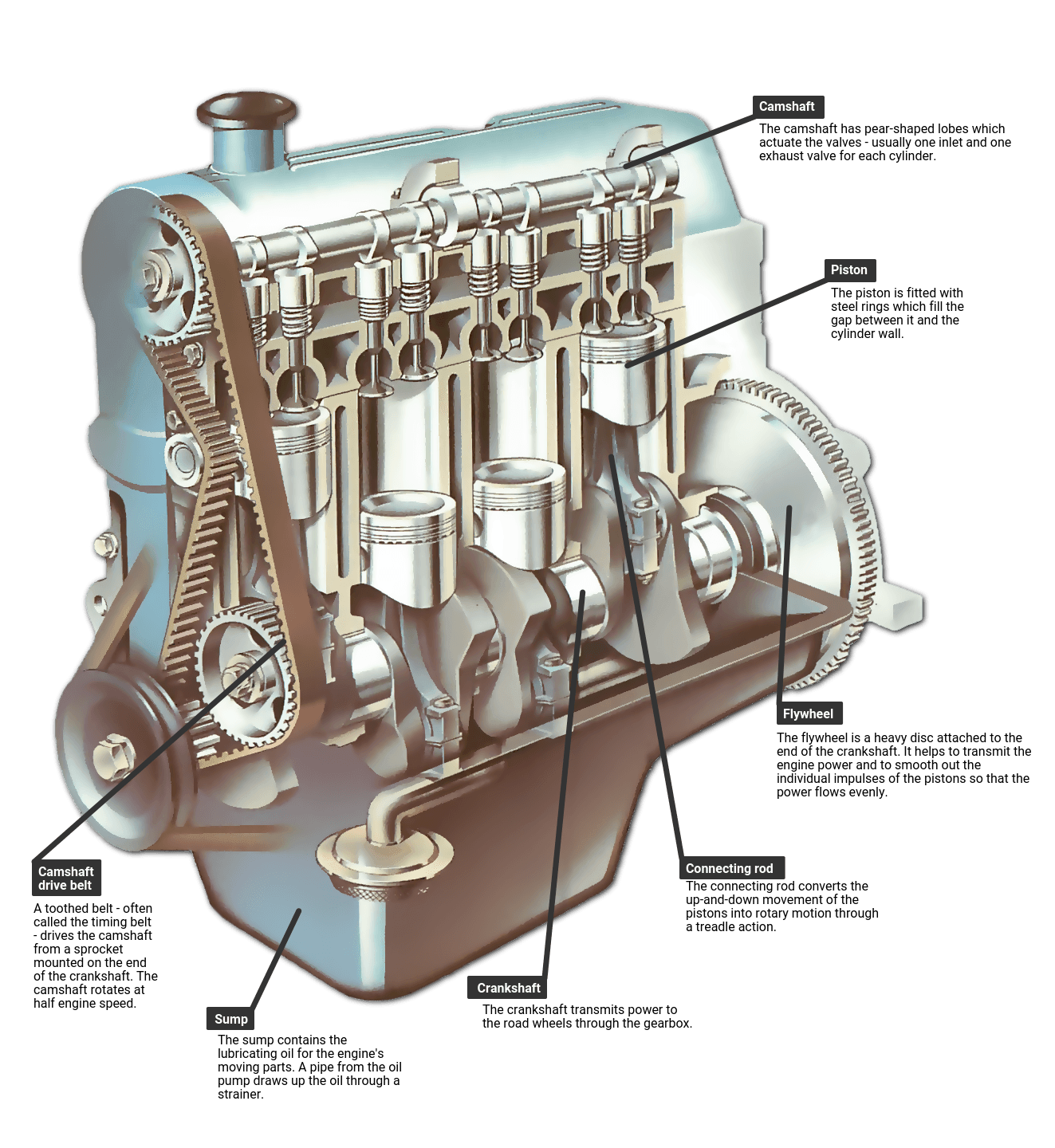Engines For Africa: Leading Provider of Premium Engines
Engines For Africa: Leading Provider of Premium Engines
Blog Article
A Full Guide to Choosing the Right Engine for Your Task
Choosing the appropriate engine for your task is an important choice that can significantly affect its overall success. It is vital to meticulously specify your task requires, assess performance demands, and consider user-friendliness along with other essential variables. Additionally, recognizing the area assistance readily available and scrutinizing cost effects can further improve your selection. Each of these elements plays an essential function in making sure that your selected engine not only meets instant purposes however additionally aligns with long-lasting desires. As we discover these factors to consider, you might locate that the subtleties of each aspect disclose greater than initially prepared for.
Define Your Task Requirements
Defining your project requires is a critical action in picking the ideal engine for successful implementation. A detailed understanding of your job's purposes will direct you in determining the abilities and functions required from an engine. Begin by describing the scope of your task, including the preferred performance, target market, and the particular results you intend to achieve.
Following, consider the technological requirements that align with your project objectives. This includes evaluating the compatibility of the engine with existing systems, as well as the programs languages and structures that will be utilized. Additionally, assess the level of scalability needed to accommodate future development or modifications sought after.
Spending plan restraints likewise play a vital role in specifying your project requires. Establish a clear economic framework to assist your decision-making procedure, ensuring that the engine chosen fits within your spending plan while offering the needed functionality.
Evaluate Performance Needs

Engines that support straight scaling are typically more suitable for larger applications. In addition, assess the engine's efficiency under various problems, such as peak usage situations, to guarantee it satisfies your reliability standards.
Think About Simplicity of Use
While technical specs are crucial, the convenience of use of an engine can dramatically impact the advancement procedure and total task success. An user-friendly interface, clear documents, and streamlined operations can significantly reduce the understanding contour for developers, allowing them to concentrate on creativity and analytic rather than coming to grips with complex tools.
When examining an engine's convenience of usage, consider the onboarding experience. A well-structured introduction, complete with tutorials and sample projects, can promote a smoother shift for brand-new users. In addition, the clearness and comprehensiveness of the engine's documents play an important duty; thorough guides and API recommendations can encourage programmers to fix and implement functions effectively.
One more facet to consider is the engine's modification capabilities. An engine that enables very easy modifications can be much more user-friendly, as designers can customize it to fit their specific requirements without extensive problem. Assess the operations integration with tools and systems you already utilize. A cohesive environment can improve performance and decrease friction throughout the advancement procedure. Eventually, picking an engine that focuses on simplicity of use can cause an extra delightful and effective growth experience.
Assess Area and Assistance
The strength of an engine's area and support network can significantly influence a developer's experience and success. When assessing an engine, think about the dimension and task degree of its area.
Additionally, assess the accessibility of main assistance networks. Reputable documentation, receptive client assistance, and regular updates are important for attending to technological concerns and keeping your job on track. Engines For Africa. Active areas likewise foster partnership, offering chances for networking and responses, which can be very useful, particularly for independent programmers or tiny groups
Additionally, explore the presence of community-run occasions, such as hackathons or meetups. These gatherings can visit this page enhance your understanding of the engine while attaching you with potential collaborators and seasoned users. In summary, a robust neighborhood and support system not just simplify advancement however likewise develop a setting for discovering and development, ultimately improving the likelihood of your job's success.
Compare Cost and Licensing Options
Budget plan considerations play an essential function in selecting the ideal engine for your job, as the expense and licensing options can significantly impact both short-term expenditures and lasting viability. Engines For Africa. Different engines supply varying pricing structures, which can include single acquisition fees, membership designs, or revenue-sharing contracts based on your project's incomes

Certifying options additionally differ considerably. Some engines are open-source, offering flexibility and community-driven support, while others may need proprietary licenses that restrict usage and distribution. Understanding the effects of each licensing version is essential, as it influences ownership civil liberties, future scalability, and possible lawful obligations.
Verdict
In final thought, choosing the appropriate engine for a project demands a detailed analysis of defined job demands, performance needs, ease of usage, area support, and price factors to consider. By systematically resolving these essential elements, decision-makers can make sure alignment with both current and future task needs. A well-informed option you can check here ultimately improves the likelihood of task success, allowing effective resource appropriation and making best use of possible results within the specified monetary restrictions.
Selecting the ideal engine for your project is an essential see this website choice that can considerably influence its overall success.Defining your job needs is an important step in choosing the proper engine for successful application. A detailed understanding of your project's objectives will direct you in determining the functions and abilities needed from an engine.When you have a clear understanding of your job needs, the following step is to assess the efficiency requirements of the engine.In final thought, choosing the ideal engine for a task necessitates a detailed examination of specified job requirements, efficiency needs, convenience of use, area support, and expense considerations.
Report this page